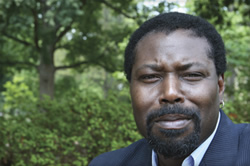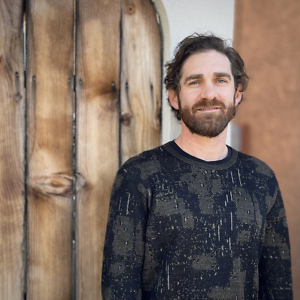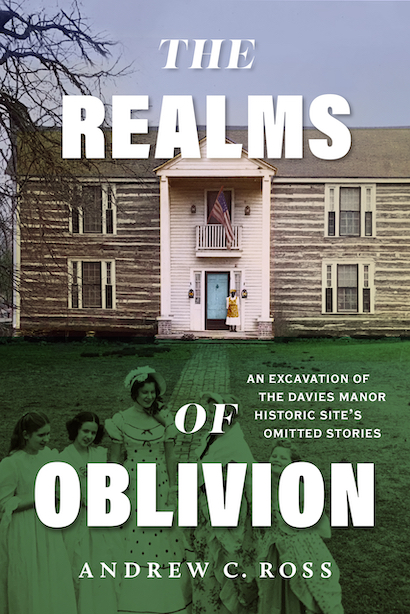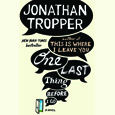Fanning the Fire
Essayist, scholar, and novelist Randall Kenan responds with passion to the legacy of James Baldwin
“These days people can be so trite when discussing the idea of race and its attendant problems. Too many reach instantly for bromides and hackneyed phrases that merely restate positions, rehash old battles, resurrect silly stereotypes,” writes Randall Kenan in The Fire This Time, his homage to James Baldwin’s classic, The Fire Next Time. In the book, Kenan avoids those pitfalls, weaving his personal story into a wide-ranging look at contemporary African American experience. The acclaimed author of several works of fiction and nonfiction, Kenan is a professor of English at the University of North Carolina.
Chapter 16: Your most recent book, The Fire This Time, is composed and titled in homage to one of your literary heroes, James Baldwin, author of the seminal essay collection The Fire Next Time. You’ve also written a YA biography of Baldwin. How did you discover his work, and what has its impact been on your own?
 Kenan: When I was growing up in the 1970s James Baldwin was the African American writer of note, even though Alex Haley would come along with Roots sometime in the middle of the decade. But Baldwin’s long body of work, his reputation from the civil-rights movement, his fame, and his last best-seller, Just Above My Head, made him so well known it was difficult for me to escape knowing very much about James Baldwin even before I got to high school.
Kenan: When I was growing up in the 1970s James Baldwin was the African American writer of note, even though Alex Haley would come along with Roots sometime in the middle of the decade. But Baldwin’s long body of work, his reputation from the civil-rights movement, his fame, and his last best-seller, Just Above My Head, made him so well known it was difficult for me to escape knowing very much about James Baldwin even before I got to high school.
Chapter 16: In The Fire This Time you mention then-presidential candidate Barack Obama as one of a new “class within a class” of notable African Americans (including Malcolm Gladwell, Oprah, and others). You wrote that Obama “could well be the catalyst for the end of the civil-right movement as we know it and the beginning of a new type of participation.” A year into his presidency, what impact has President Obama had on American culture and on race relations?
Kenan: I think that change is underway. It’s not going to happen overnight, and it will not always come primarily out of the White House. It will be in the schools, on the playgrounds, in the factories and hospitals. And it won’t happen easily, but I think Obama’s election is certainly a bellwether for and of that change.
Chapter 16: One theme you’ve explored in your fiction but don’t address in The Fire This Time is gay identity—in particular, the experience of being black and gay in the South. Did you consciously omit or avoid this subject when putting together this collection?
Kenan: I don’t think a discussion of black and gay issues was truly omitted, but clumped in with a broader discussion of human rights and cultural mores. If it had been central to any of my points I would have certainly made more room for a discussion, but for a book of this size I had to abbreviate the discussion of a lot of powerful and important topics.
Chapter 16: Much of your fiction is set in Tims Creek, a small North Carolina community based on Chinquapin, a rural town in southeastern North Carolina, where you grew up. I understand that your next novel will be set there, too. What keeps you coming back to this place?
Kenan: Creating your own real estate is a trick I learned from the old masters, and I’m not the only one to have done that. (A number of other North Carolina writers have founded their own fictional towns too. And of course that’s not limited to my home state.) But having your own plot of land allows you to set down fiction roots and return as often as you like and to revisit characters and to deepen that wonderful sense of a place that mimics reality. Plus it’s just darn fun.
Chapter 16: I love how the supernatural plays a vivid role in several of the stories in Let the Dead Bury Their Dead. It lends them a bit of a campfire quality, but they’re subtle, too. Where does your interest in this sort of storytelling come from?
Kenan: I was always intrigued by the idea of the supernatural, both in pop culture and in folk culture and in literature. And I essentially grew up surrounded by folk culture, with old folks telling stories about strange goings on. If you add the Baptist tradition and the study of the Holy Bible—the ultimate Magical Realist text—to that … well, it just came to me naturally.
Chapter 16: “Hip hop. I too distrust it,” you write in The Fire This Time. But you mention that there are certain hip hop acts you “adore.” Which ones are those, and why?
Kenan: Ha! Too many for me to name, actually. I would pick three I adore, but I think it is going to date me: Missy Elliot, Arrested Development, and Eminem.
Chapter 16: In The Fire This Time, you write, “For those of us on the ground, there appears to be a great chasm in this new Ebony Tower thinking, a wide gulf between the decrepit housing projects and the ownership of KFC Franchises, a missing link between minimum-wage jobs and paying for increasingly expensive college educations, a loose attachment—even before that promised promising education—in the very nuts and bolts of inspiring a doom-embracing generation to believe in the value of getting that education, to find a way in a world where slinging drugs and looking forward to an early, glorious death are tangible, and where medical school just seems like a fantasy.” Can you say a bit more about this? What are black intellectuals doing wrong, and how might they do better? And what do you think your role, as a university professor, is in this struggle?
Kenan: If memory serves, this passage is actually more about a way of thinking about class and the African American situation, the old way of bifurcating the argument between the haves and the have-nots going further back than DuBois and Washington. DuBois’s Talented Tenth and Washington’s notion of learning a vocation as being the best and most practical form of uplift. The statement you quote is a suggestion that changing the way we think about the possibilities will help in that uplift for the masses. Changes in attitudes about education and opportunities and possibilities—motivation—must begin with young people knowing about these things. The black middle class has been growing steadily—though they’ve just taken a major hit, just like all of America—and yet, as I point out in the book, the gap between African America and the rest of America is still troubling. Some, though not all, of that gap can be addressed by education and by change of perception among the young folk who are most at risk.
Of course as a writer and as an educator I’m all about affecting the way people think.
Chapter 16: You teach at the University of North Carolina at Chapel Hill. Talk a bit about how you bridge the writing and teaching lives. A harmonious marriage? A rocky but solid one?
Kenan: It is always a challenge, especially in the middle of the semester when you’re swamped with the writings of hopeful young writers and must constantly muster careful concern for helping them help themselves. But I love the academy and being surrounded by books and people who care about words and the opportunity to share my love for all that. So ultimately I’m a right lucky individual.
Chapter 16: President Obama’s election was a time of great hope in America; in the past year, I think we’ve all felt a lot of fear, and struggled to hang onto our hope. Are you hopeful now? Fearful?
Kenan: I think of that wonderful gospel hymn, “His Eye is on the Sparrow”:
Why should I feel discouraged
Why should the shadows come
Why should my heart feel lonely
And long for heaven and home. …
One of the things a long view of history teaches is that we’ve all been the beneficiaries of a lot of struggle, and to think how the ancestors would view us now. We’d be silly fools to not look back in wonder at how we’ve all progressed and not be hopeful that things will get better. And, even more, just plum lazy to fall into fear and despair. Or maybe that’s just me.
I sing because I’m happy
I sing because I’m free. …
On January 28, Kenan will discuss his work in Room 101 of Buttrick Hall on the Vanderbilt University campus.





